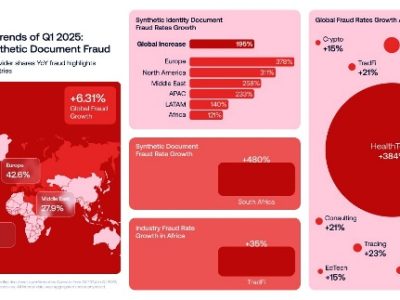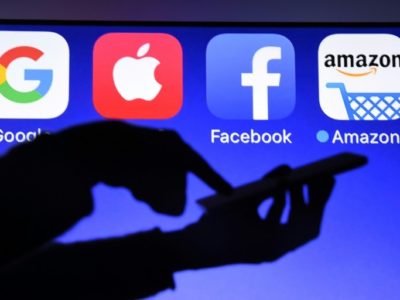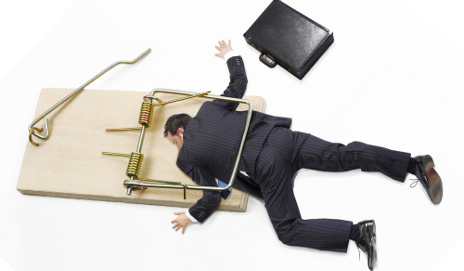The popularity of Social Media is not necessarily because the connecting tools are readily available, it’s because we are social animals competing for space and significance notes this KMI report.
Before you finished this piece, more than 51 million Africans and about 6 million Nigerians would have posted something online, particularly Facebook. Those ‘some things’ range from serious news on crime or insurgency; finding God, some taste of oriental Yoga or seeking some occidental philosophy on life and its meanings to the jocular on some clowns making a fool of themselves; or some bits on employment opportunities, how to turn your finances around and those ever catchy dating stuffs to how to make mind blowing sex.
And Ah! Those selfies that almost put President Barack Obama in trouble with First Lady Michelle. Remember that famous selfie that Obama took with Danish Prime Minister Helle Thorning-Schmidt and got the jealous disapproval of his wife? Over 900 million people viewed that bit within days and millions of people made comments across millions of sites. After the Obama selfie, other selfies have pulled more audience across the globe, including those of the British royal family. A selfie is typically a self-portrait photograph taken with a handheld digital camera or camera phone. Selfies predate social networking, but they have become phenomenal in usage and spread thanks to such sites as Instagram.
You want to know how much of selfie culture exists in Nigeria? Here’s an interesting revelation. According to Time Magazine, Ikeja in Lagos, Nigeria takes more selfies than any other city in Africa. Ikeja with a population of just over 313, 000 boasts of 14 selfies to every 100,000 people. The 2nd to 6th positions all go to South African Cities. Johannesburg has seven selfies taken for every 100,000 people; Cape Town (331); Pretoria (379); Port Elizabeth (400) and Durban (414). Then Nairobi Kenya comes in at 7th place. Time built a database of more than 400,000 Instagram photos tagged selfie that included geographic coordinates to investigate the geography of selfies.
But this piece is not about selfies. It is about how social we have all become online. Everyone has gone social; and almost everything else that is an institution. Schools, hotels, government, banks, research centres and libraries, priests and religious centres. Even Pope Francis, head of the Roman Catholic church tweets and President Paul Kagame of Rwanda too. We have all gone social. The only people not gone that way are those impervious to change and still ignorant of the power of the social media.
You wonder if our own President Goodluck Jonathan has gone social too? He has. The president, together with his ministers and other high ranking officials who control power, money or both, whether at the states or at federal level have all gone social. You should visit https://www.facebook.com/jonathangoodluck. Over 1,362,790 likes for this Facebook page and there are about half a dozen of similar Goodluck Jonathan pages.
Aristotle was right after all: “Man is by nature a social animal.”
With the social media, the 21st century man has turned virtual platforms to foster relationships, promote violent and nonviolent ideologies; expand market reach and do more than he can even imagine. Everyone uses social media to achieve specific goals, including the violent Boko Haram insurgents in northeastern Nigeria. In spite of its avowed hatred of western education, nay technology, the sect has, more than any other known terrorist groups, used the social media to project its ideologies and its acts of violence. There are more video materials by Boko Haram online than any other known violent fundamentalists. For all its acclaimed hatred of modern technology, the sect heavily feeds on the Internet to seek global attention.
Who else is lapping on to social media?
Everyone, including you and you are likely going to read this piece not in its printed hardcopy version but online on social media sites that have re-tweeted or reposted it.
Why have pop stars, presidents, priests, and brigands gone social? Why are the banks and schools, hotels and hospitals on Facebook, Twitter, etal? Because social media is vocal! It is a powerful tool of expression for the youth, who make up about 70 percent of the entire Nigerian population. As writer Sunny Bindra aptly puts it in his recent article in the Sunday Nation, social media “merely gives formerly hidden sentiments an easy outlet. It reveals the problem in our midst and prevents us from brushing over what ails our societies. For too long, we have tried to avoid the stench of bigotry and narrow- mindedness by not allowing it in civilized discourse. In the social era, all stenches escape.” Social Media is a recruiting ground for a vital segment of the population for politics, business, religion, crime or conflict.
Ten Major Brands in Nigeria with the highest Facebook fans. |
|
| Guaranty Trust Bank | 1,763,285 |
| MTN Loaded NG | 1,560,908 |
| Airtel | 989,979 |
| Natures Gentle Touch | 899,708 |
| Konga | 857,090 |
| Nokia Nigeria | 817,547 |
| Etisalat | 699,322 |
| Glo World | 582,606 |
| Shoprite Nigeria | 458,764 |
| Always Nigeria | 458,378 |
Any wonder why politicians are afraid of social media. Ask the ousted political leaders in North Africa – Tunisia, Libya, and Egypt. Living testimonies of what can happen when people get social online. Mustapha Ahmed, a political social commentator believes social media will be a decisive factor in Nigeria’s 2015 elections. Politicians are more aware of the power of the internet and would use it to their advantage as the country enters into a year of heavy political activities. Ahmed said that Twitter has been revolutionary in politics in Nigeria since 2013 pulsating with so many ideas that people are pushing out every day; and it will play an even greater role in the 2015 elections beginning this year.
In 2011, President Goodluck Jonathan first launched his political campaign on Facebook and went on to capture the hearts of many young and able young people who will be his foot soldiers, campaigning across the country on the Goodluck theme without as much as being hired or paid. It took just captivating Facebook posts to get a lot of youngsters involved. Now there is more vibrancy, opposition figures are drawing blood online. Politicians are getting fierier with pronouncements on social media and hate speeches is spiraling at an alarming rate to make some analysts warn of serious post elections violence [KMI is conducting research on online hate speeches and likely violent outcomes in the 2015 Nigerian elections].
Why are we going social?
Now companies can engage customers directly and have valuable ideas harvested from customers to benefit their product or service line and also evolve the right marketing strategies to approach the market. Ask GTBank about this. Organisations can dialogue with the outside world including customers. Social Media are conduits for tapping needed information and could help provide a framework to addressing specific market needs or issues as they affect an industry/sector. Ask the Nigerian Communications Commission (NCC) about their very engaging Facebook page and how it drives its customers’ service goals. If companies need feedback on new products and service, they have their own direct channel to make assessment and not just depend on consultants or the marketing department. Ask First Bank about this. Everyone has gone social. Your customers, investors, stakeholders, employers, employees, competitors, and even the country next door, have all gone social. The stakes don’t go down. They get higher to dominate whatever is value to the market, political and social spaces.
“Every age creates its own tools and excels in those tools. We are limited or unlimited to the extent of what tools we have handy for our age. The digital age has brought once unfathomable possibilities. It has strengthened old ways of doing things and created entirely new ones. We are at once amazed and at once frightened by the possibilities of our time, whether as teachers or as political leaders. Even as scientists too. Whether everyone is engaged online now is a non issue. Ultimately, everyone will be socially engaged online to further extend the possibilities that can happen between people and communities,” said sociologist Prof. Samuel Zalanga, Nigerian born researcher and lecturer at St Pauls University, United States of America.
Man is a social animal so too everything he has created. Now, GTBank currently has about 1,763,285 Facebook fans, the largest of any African bank or any brand in Nigeria. Its social banking service allows GTBank Social Account holders transfer money, purchase airtime, pay bills, and confirm their account balance on Facebook. It is a phenomenal growth that underscores both the ability of the bank to respond to change and the creative impact of social media on the financial sector. The bank’s audited financial results for the year ended December 31, 2013 shows a strong and positive performance across all financial indices helped by its expansive brand equity nurtured on social media. Nigeria. Hear Mr Segun Agbaje, Managing Director/CEO of Guaranty Trust Bank PLC “The Bank is committed to ensure its stakeholders can perform financial transactions at their convenience and would continue to introduce safe and novel alternative channels for them to do so.”
Social media generates up to 50 per cent of the Nigerian website’s traffic and explain why businesses are reconfiguring their market presence to leverage on social media. “Nigeria already had 56 million internet users in 2012 with an average time of three hours spent on the internet. However, 61% of Nigerians access internet through mobile devices, which is the highest mobile internet penetration rate in Africa. When taking a closer look at their favorite activities during their online time, it becomes apparent that social networking is what engages Nigerians most of the time. Social media such as Facebook and Twitter are used for both, social and business purpose,” said Allie Morse, CEO of Lamudi, West and Central Africa. Lamudi focuses on providing value in real estate business via online platforms and has invested heavily on social media to achieve its business goals.
Top Ten Most Followed Nigerians on Twitter |
||
Name |
Followers |
|
| Pastor Cris Oyakhilome | 1.33 million | |
| Wizkid | 1.05 million | |
| Dbanj | 840, 000 | |
| Don Jazzy | 756,000 | |
| 2face Idibia | 715,000 | |
| Davido | 711,000 | |
| Genevieve Nnaji | 560,000 | |
| Peter Okoye | 551,000 | |
| Basket Mouth | 477,000 | |
| Tonto Dikeh | 388, 000 | |
Why are we all increasingly becoming online social animals? It’s mobility. The smart mobile devices and the mobile internet, both have connived to make us much more active at the nexus of everything from country to corporate institutions. The interesting thing is that we can be active from a distance without as much as leaving our rooms or offices. We can decide who becomes the next CEO or the next president just by keeping close to the online social media and guiding how people think, and ultimately, what decisions they take.
Knowhow Media Reports: SEGUN ORUAME (Editor); MOSHOOD ABUBAKAR (Asst Writer/Research





























